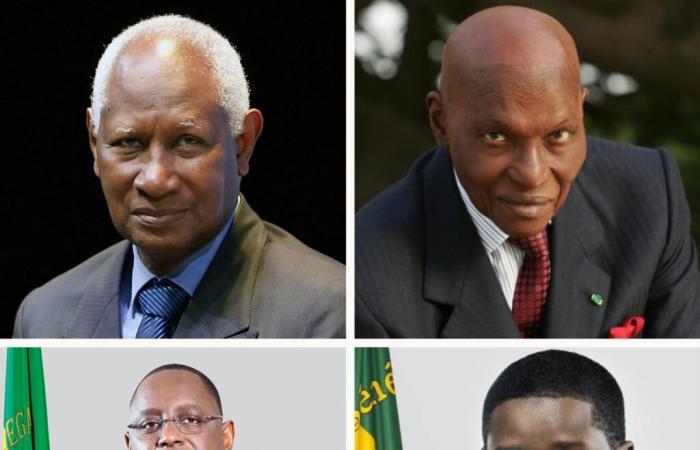Ouestafnews – The Senegalese opposition, following a now well-established republican ritual, conceded its defeat in the legislative elections of November 17, 2024. It welcomed the victory of the ruling party, just a few hours after the closing of the polling stations, without even waiting the announcement of the official results.
“The sovereign people have clearly expressed themselves”, reacted the former President of the Republic Macky Sall, on Monday November 18, 2024, on social networks. The former head of state, head of the list of a coalition in which we find his party, the APR (Alliance for the Republic) and the Senegalese Democratic Party (PDS) of his predecessor Abdoulaye Wade.
Before him, the coalition led by the mayor of Dakar, Barthélémy Diaz and some of the leaders on this list had done the same. They conceded defeat and congratulated Prime Minister Ousmane Sonko, whose list was widely favored when the first trends were announced.
Invested on the same list as the mayor of Dakar, the opponents Bougane Guèye Dani, Anta Babacar Ngom, Thierno Bocoum and Pape Djibril Fall did the same.
Former Prime Minister, Amadou Ba, unsuccessful candidate in the March 2024 presidential election and head of the list of another opposition coalition will follow.
All admitted the “choice of the sovereign people” and at the same time praised their “political maturity”, thus perpetuating a tradition of changes of executive or parliamentary majority, initiated since 2000, date of the first democratic change in the country.
And since this famous phone call from Abdou Diouf, then head of state and boss of the socialist party (PS) to Abdoulaye Wade, one evening in March 2000, this democratic and republican tradition, consisting of congratulating the winner, has gradually anchored itself in Senegalese political mores.
On March 19, 2000, Mr. Abdoulaye Wade, supported by a large opposition coalition, put an end to 40 years of reign of Abdou Diouf’s Socialist Party (PS).
The outgoing president acknowledged his defeat and called his opponent to congratulate him a few hours after the polling stations closed and the first trends were broadcast by the media. Senegal had just broken the Indian sign against the socialist juggernaut which had held the country since independence, and refused to release it.
The whole world then turned to Senegal to salute its democratic model, especially in a West Africa caught in the turmoil of civil wars and failed transitions.
In the same vein as his predecessor, Abdoulaye Wade also recognized the victory of his former Prime Minister Macky Sall and congratulated him without waiting for the official results on March 25, 2012, during the second round of the presidential election.
More recently, during the presidential election of March 2024, former Prime Minister Amadou Ba, candidate of the presidential camp, recognized his defeat against opponent Bassirou Diomaye Faye on March 25, 2024, the day after the first round.
There was a small interlude when Abdoulaye Wade won his second term in 2007. Some candidates had refused to congratulate him even if the latter, despite bad luck, had nevertheless complied with the verdict of the polls after unsuccessful challenges.
Alongside the presidential elections, changes in parliamentary majority have continued in Senegalese political life since the historic turning point of 2000.
A few months after his election, the head of state Abdoulaye Wade declared the dissolution of the National Assembly and called early legislative elections on April 28, 2001 in order to win a majority of deputies.
March 25, 2012, second alternation and again. The coming to power of Macky Sall and the change of regime will lead to a new upheaval in the chamber, which will be dominated by the new coalition in power after the legislative elections of July 2012.
This tradition of “concordance” between the presidential and parliamentary majority is what will be repeated at the end of the early legislative elections of November 17, 2024, if we stick to the major trends already announced.
The elections to elect deputies were called by President Bassirou Diomaye Faye after announcing, on September 12, 2024, the dissolution of the National Assembly. At the time, it was dominated by supporters of ex-president Macky Sall. President Faye’s argument, like that of his predecessors: the need for a majority favorable to his cause to govern. The Senegalese voters have just offered it to him.
IB-TS/fd
Would you like to react to this article or report an error to us? Send us a message at info(at)ouestaf.com.






